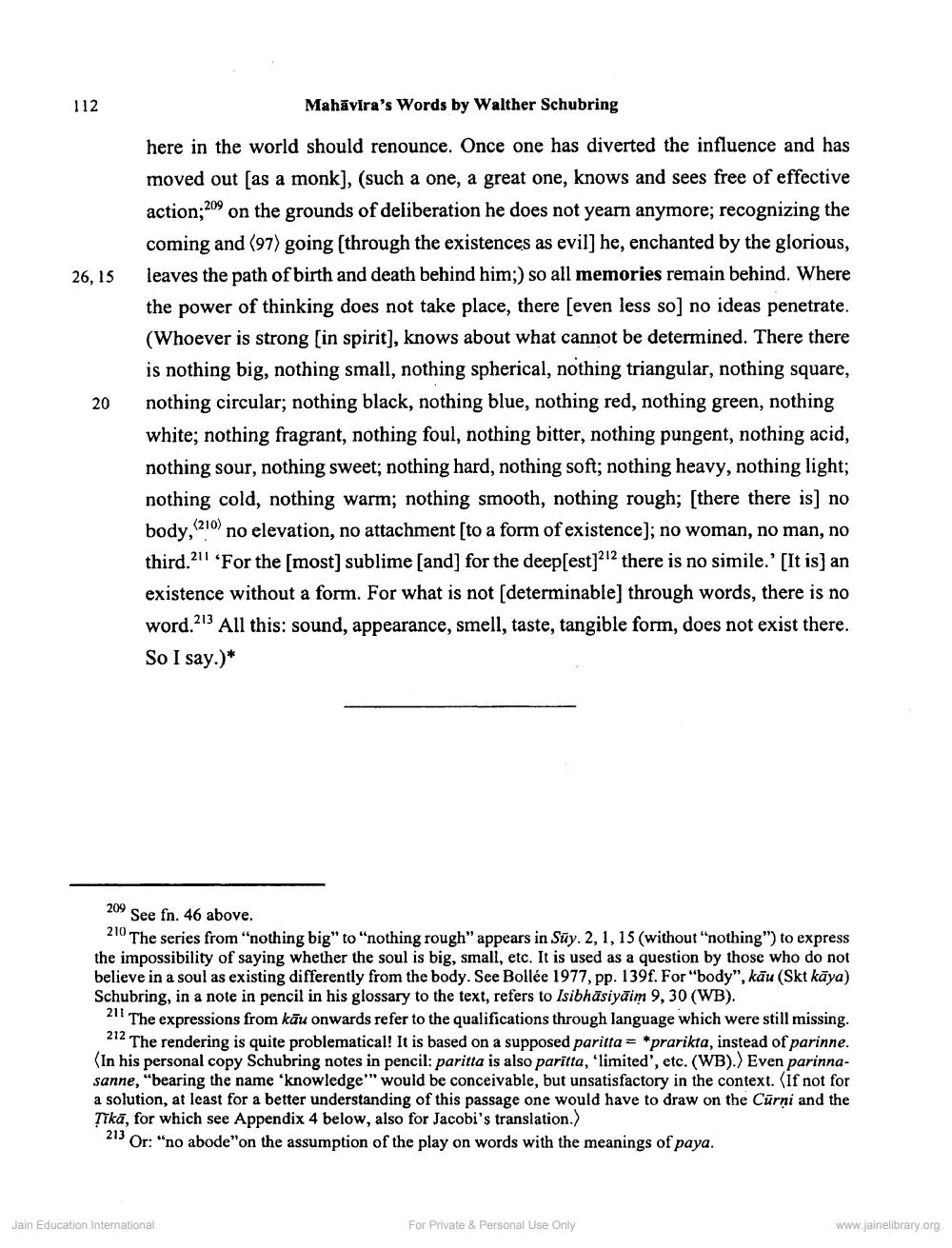________________
112
26,15
20
Mahavira's Words by Walther Schubring
here in the world should renounce. Once one has diverted the influence and has moved out [as a monk], (such a one, a great one, knows and sees free of effective action;20 on the grounds of deliberation he does not yearn anymore; recognizing the coming and (97) going (through the existences as evil] he, enchanted by the glorious, leaves the path of birth and death behind him;) so all memories remain behind. Where the power of thinking does not take place, there [even less so] no ideas penetrate. (Whoever is strong [in spirit], knows about what cannot be determined. There there is nothing big, nothing small, nothing spherical, nothing triangular, nothing square, nothing circular, nothing black, nothing blue, nothing red, nothing green, nothing white; nothing fragrant, nothing foul, nothing bitter, nothing pungent, nothing acid, nothing sour, nothing sweet; nothing hard, nothing soft; nothing heavy, nothing light; nothing cold, nothing warm; nothing smooth, nothing rough; [there there is] no body, (210) no elevation, no attachment [to a form of existence]; no woman, no man, no third. For the [most] sublime [and] for the deep[est]212 there is no simile." [It is] an existence without a form. For what is not [determinable] through words, there is no word.213 All this: sound, appearance, smell, taste, tangible form, does not exist there. So I say.)*
209
See fn. 46 above.
210 The series from "nothing big" to "nothing rough" appears in Suy. 2, 1, 15 (without "nothing") to express the impossibility of saying whether the soul is big, small, etc. It is used as a question by those who do not believe in a soul as existing differently from the body. See Bollée 1977, pp. 139f. For "body", kāu (Skt kāya) Schubring, in a note in pencil in his glossary to the text, refers to Isibhāsiyaim 9,30 (WB).
211 The expressions from kau onwards refer to the qualifications through language which were still missing. 212 The rendering is quite problematical! It is based on a supposed paritta prarikta, instead of parinne. (In his personal copy Schubring notes in pencil: paritta is also paritta, 'limited', etc. (WB).) Even parinnasanne, "bearing the name 'knowledge"" would be conceivable, but unsatisfactory in the context. (If not for a solution, at least for a better understanding of this passage one would have to draw on the Curṇi and the Tikā, for which see Appendix 4 below, also for Jacobi's translation.)
213
Or: "no abode"on the assumption of the play on words with the meanings of paya.
Jain Education International
For Private & Personal Use Only
www.jainelibrary.org




